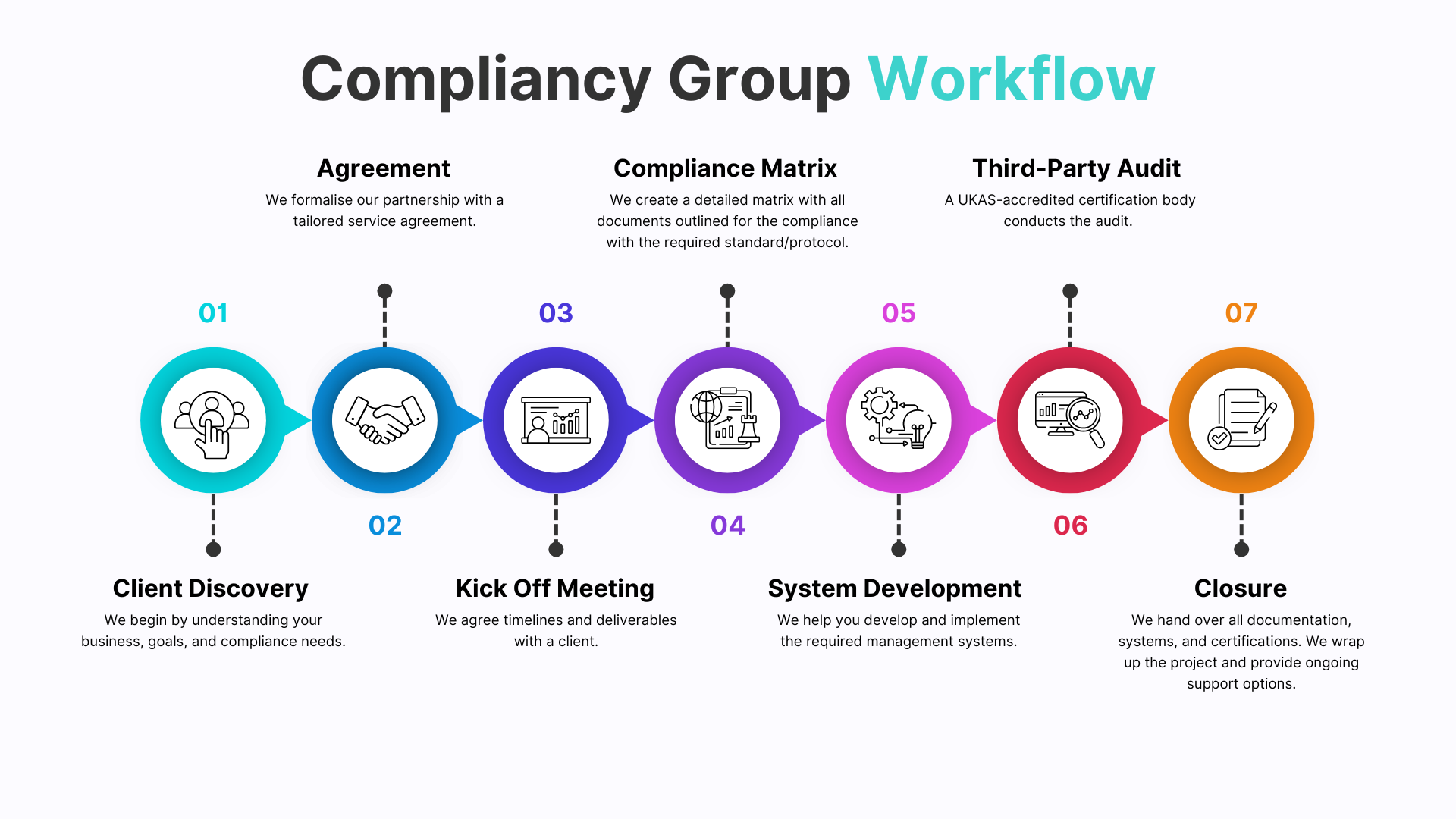We're Here To
Help
A Vehicle Safety Inspection is a comprehensive assessment designed to ensure that all vehicles in your fleet are safe, roadworthy, and compliant with legal and industry standards. Completing regular vehicle safety inspections demonstrates your business’s commitment to driver safety, regulatory compliance, and proactive risk management – trusted by clients, partners, and regulators across transport, logistics, and service sectors. With robust vehicle safety management, you reduce the risk of accidents, protect your workforce, and maintain operational reliability. Compliancy Group guides you through every step – making vehicle safety compliance clear, practical, and a genuine business advantage.
We understand the complexities of fleet safety, maintenance regulations, and industry standards. Our team brings hands-on experience with vehicle safety inspections, defect reporting, and best practices for transport compliance.
No one-size-fits-all here. Whether you need initial inspections, ongoing monitoring, documentation support, or compliance advice, our services are fully customised to your operations. We offer flexible support packages—from essential guidance to comprehensive on-site consultancy.
We work exclusively with UKAS-accredited certification bodies and maintain a 100% pass rate for compliance assessments. Our clients trust us to deliver results that stand up to audit and regulatory scrutiny—helping you achieve, maintain, and leverage vehicle safety compliance for business growth.
Compliance shouldn’t slow you down. We help you build safer fleets, reduce risk, and improve operational efficiency—so you can focus on your core business.
You’ll work directly with our expert team, including leadership involvement from our CEO. We pride ourselves on responsive communication, clear guidance, and ongoing support throughout your compliance journey.
Demonstrate compliance to secure contracts and reassure clients or insurers.
Show your commitment to vehicle safety, legal responsibilities, and industry standards.
Minimise the risk of vehicle defects, accidents, and costly liabilities.
Enhance your standing as a responsible and trusted organisation.
Regular inspections and compliance checks foster a culture of ongoing safety and operational excellence.
Strengthen Reputation
From initial inspection to ongoing support, our team ensures you’re always prepared and confident.
We streamline compliance processes, freeing up your team to focus on core business activities.
Services are tailored to your specific business needs, not generic templates.
Ongoing support, training, and regulatory updates keep your business compliant long after inspection.
Our 100% compliance pass rate and exclusive partnerships with UKAS-accredited bodies mean you’re in safe hands.

A Vehicle Safety Inspection is a thorough check to ensure every vehicle in your fleet is safe, roadworthy, and compliant with legal and industry standards. It’s important because it helps protect your drivers, reduces accident risks, and demonstrates your commitment to safety and compliance to clients, partners, and regulators.
Inspections should be carried out regularly—typically before each use, weekly, or as required by law or company policy. Frequent checks help catch issues early and keep your fleet safe and compliant.
Inspections must meet national road safety laws (like the MOT in the UK) and any relevant industry-specific standards, ensuring vehicles are safe, compliant, and suitable for their intended use.
Regular inspections identify and fix potential issues before they become serious, reducing breakdowns and accidents, protecting your workforce, and maintaining your business’s reliability and reputation.
Checks typically include testing the battery, antifreeze levels, wiper blades, lights, brakes, tyres, and other essential components to ensure the vehicle is safe and roadworthy.
Yes, especially when buying a used vehicle. A comprehensive inspection can identify hidden faults and help you avoid costly repairs later.
No. An MOT checks government road safety and emissions standards, while a vehicle inspection gives you a detailed assessment of a vehicle’s current condition.
A statutory vehicle inspection is a legally required check (like the MOT) to confirm a vehicle meets safety and roadworthiness standards. Failure to pass can result in fines and the vehicle being taken off the road.